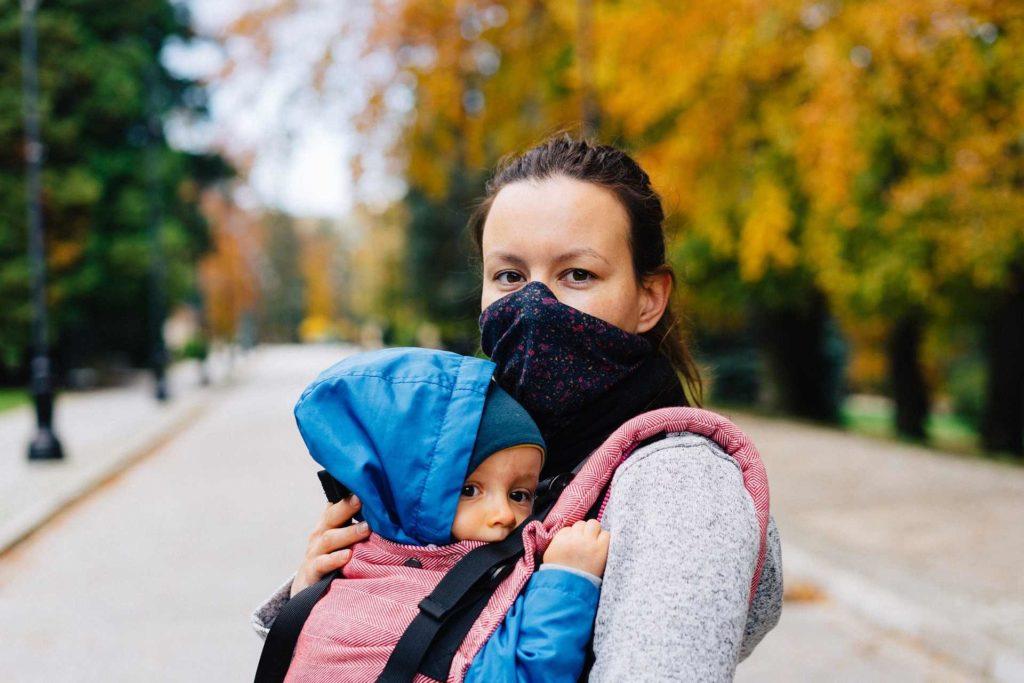
“Prevent, detect, contain and treat”: following the pillars of its pandemic preparedness and response framework, Germany’s handling of the COVID-19 pandemic has been praised for its low fatality rate. However, the conventional prioritization of immediate biomedical needs as the primary guiding principle in outbreak management arguably came at a cost for other systemic issues. Numerous groups paid the price that resulted from decades of structural exclusion from power. Women and gender minorities were at a great disadvantage, as well as a multitude of individuals and groups whose intersecting identities lead to a systemic exclusion from decision-making processes. Despite growing evidence that highlights the gendered impacts of disease outbreaks and associated policies, gender analyses continue to be neglected when informing decision-making processes during health emergencies at global and national levels. This “tyranny of the urgent” in crisis situations results in negative impacts on the health and wellbeing of marginalized communities. In this opinion piece, we argue that not only have the parameters that defined Germany’s response to the pandemic had a more devastating impact on marginalized people, the inability to reflect on these shortcomings will also lead to more far-reaching impacts in current and upcoming crises, including the planetary crisis (on climate change and biodiversity).
In 2020, shortly after the outbreak of the COVID-19 pandemic, the German government agreed on a comprehensive economic stimulus package incorporating cuts in value added tax and financial allowances, largely benefiting industrial sectors dominated by men (such as construction). Only 4% of stimulus measures specifically targeted women. Policy responses disregarded the pandemic’s disproportionate adverse economic, social, and health impacts on women. As noted by Sabine Rennefanz, this was not a deliberate result, but rather entrenched in values that disregard social spheres such as domestic care and childcare as blind spots on political agendas. An example of this was the recommendation of the Leopoldina, the German National Academy of Sciences, to delay the reopening of schools which “lacked the perspective of families and especially women.” A German study demonstrated school closures’ adverse impact on caregivers’ and children’s mental health, with worse outcomes for mothers and lower socio-economic groups. The 2022 German poverty report highlighted that pandemic-specific income loss greatly affected those with lower income and single parents, both mostly women. The emergency care provided mostly by women, exacerbated existing gender-roles and worsened the precarious economic situation of those already in poverty before the pandemic. By overlooking existing inequities in pandemic preparedness and response, among others due to gender data gaps, the COVID-19 pandemic has contributed to what Judith Skhlar labeled a “passive injustice” in society. The pandemic has manifested itself as a crisis of invisibilities.
The focus on fighting the SARS-CoV-2 virus through isolation and distancing measures ignored the complex interaction of multiple factors during the emergency that amplified socioeconomic and health inequities. By shifting the narrative from a pandemic to a “syndemic” focus, pre-existing conditions would have been better addressed. The sole focus on the isolation of the virus blended out parallel crises that took place during the pandemic, including the care and environmental crises.
Emergency preparedness and response can be sustainable and effective when building on the right foundations of an equal society. If we were to focus on creating the structures for a more equal world, the impacts of crises would be felt less by all of us. This is no news; action plans for gender equality have been created by various non-governmental stakeholders with evidence-based guidance during times of crises (see e.g., Gender and COVID-19 Working Group, Women in Global Health, GENDRO, Centre for Feminist Foreign Policy). Still, the lessons learnt for addressing inequities from previous disease outbreaks and emerging evidence from the current pandemic have clearly not been considered enough. In Germany, women accounted for approximately one third of task force members and leadership roles in the composition of COVID-19 task forces. The same seems the case for other looming crises, including the planetary crisis. In many EU Member States, women are significantly under-represented in key decision-making positions related to the environment and climate change. This not only means that the potentially negative effects on especially vulnerable groups (in which women are over-proportionally represented) may be overlooked, but also that their specific knowledge regarding climate change mitigation and adaptation will not be sufficiently implemented in climate change policy. In public transport, for example, the proportion of women users far outweighs the proportion of women planners, meaning that public transport systems – by far one of the leading ways to reduce carbon emissions –often fail to include services required by female users. A closer look at the decision-making bodies in relation to climate change in Germany and internationally would contribute greatly to understanding and implementing effective policy decisions surrounding environment and climate change, integrating an intersectional view into this key area.
The COVID-19 pandemic offered us a glimpse of what can be expected in a future rife with cascading and overlapping crises. Above all, the climate crisis will affect people in different ways, and we must integrate a participative, intersectional feminist response to crises in the adaptation process. Understanding how power dynamics shape and are shaped by shifting social and political relations will provide us with better and fairer responses to crises, benefitting society and supporting those most impacted in the short and long term. The COVID-19 pandemic is not over, its long-term adverse impact is becoming clearer every day, and parallel crises do not wait.
Footnotes
Competing interests: None declared
Reflexivity statement: While the authors of this opinion piece have all experienced discrimination in one form or another, we acknowledge that our identities as white cis women, educated in the Global North, have shaped our lived experiences during the COVID-19 pandemic differently compared to ethnic, racialized, sexual and gender minority groups, people with disabilities, those with other socioeconomic or migration status, and other oppressed groups.
Correspondence: contact@yarrow-global-consulting.com